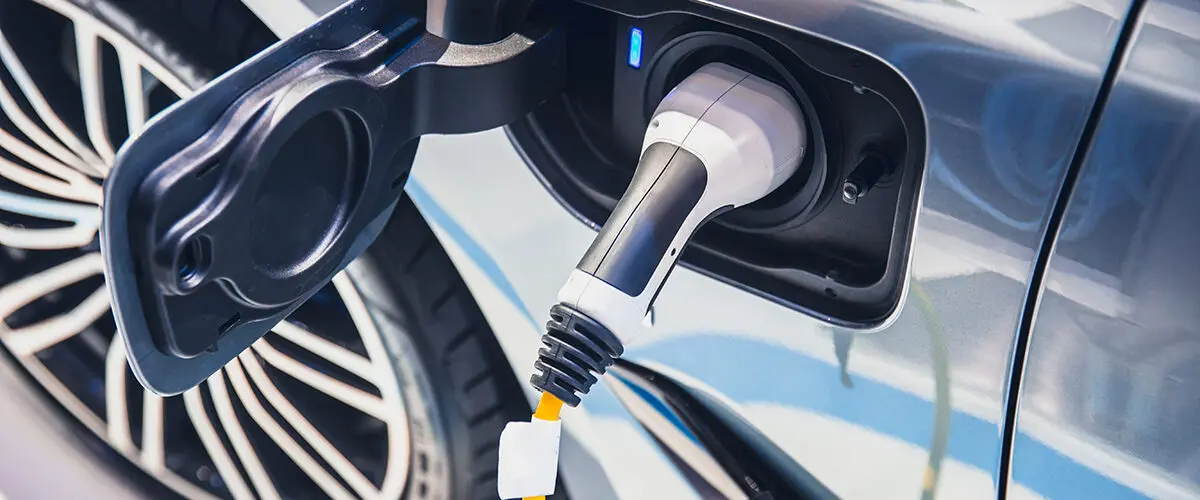OpEd: A chilling impact on Connecticut’s EV adoption rates
Connecticut is among the most environmentally conscious states in the country and has taken a leading role in advancing clean energy and climate goals, targeting an 80% reduction in climate-warming emissions by 2050.
The vast majority of transportation pollution comes from vehicle tailpipes, with cars, trucks and buses accounting for 82% of the transportation sector’s CO2 emissions. In order to meaningfully and urgently address the transportation sector’s contributions to climate change and poor air quality, a rapid transition from polluting vehicles to non-emitting electric vehicles (EVs) is necessary. Vehicles powered by electricity produce far less pollution than those running on gasoline or diesel, and as the electric grid gets cleaner, the benefits of electrification will grow. Acadia Center is working across a variety of forums to advance transportation electrification policies that are ambitious, equitable and good for consumers.
Transportation is the largest source of climate-warming emissions in Connecticut, and we have implemented public policies to deploy electric vehicles (EVs) in the state. Gov. Ned Lamont has set a goal of 125,000-150,000 EVs by 2025, and signed a letter last year urging President Joe Biden to phase out sales of new internal combustion cars by 2035. Connecticut is also providing purchase incentives to make new and used EVs more affordable and expanding charging infrastructure to streamline the transition.
These are the right steps, yet this plan has a glaring omission: Connecticut remains one of the most regressive and restrictive states for buying an EV — currently requiring all new cars in the state to be sold through a dealer as a middleman, and blocking test drives and deliveries by some EV manufacturers.
Tesla, now joined by Rivian and Lucid, have been working in the legislature for almost six sessions to open Connecticut’s EV market. Polling last year showed that 83% of Connecticut residents support opening the state for direct sales. Furthermore, sales data shows that states with direct sales have EV adoption rates that are 4.8 times higher than closed states.
Connecticut’s auto dealers defend the status quo, where they have the exclusive right to sell all new vehicles in the state, on the basis that opening for direct sales would harm their businesses and have a negative impact on employment. An analysis by the Acadia Center found, on the contrary, direct sales has had no negative impact on dealership employment on other states in the Northeast region. Additional review of data provided by the National Automobile Dealers Association through its annual NADA data report reflects this trend nationally: States that are fully or partially open for direct sales have seen higher dealership sales and employment growth than closed states.
While direct sales have not harmed existing dealership businesses in any state, preventing EV manufacturers from entering the market has also blocked jobs and investment from these companies, and had a clear chilling impact on Connecticut’s EV adoption rates. As of August 2021, Connecticut had 23,000 plug-in vehicles on the road — only 15-18% of the way toward the governor’s 2025 target. Connecticut lags Florida, Utah, Maryland and Massachusetts (all open states) in per-capita EV adoption.
There’s another downside to the dealer system that everyday Connecticut families are facing: Supply chain disruptions and other market forces have restricted vehicle supply, and dealerships have added significant markups to both electric and conventional vehicles. In January 2021 only 2.8% of vehicles were sold above sticker price — in January 2022 that number skyrocketed to 82.2%. Some popular electric vehicle models have seen five-digit markups and manufacturers ranging from Ford to Hyundai have asked dealerships to stop.
The direct sales model offers car buyers a more transparent alternative to the dealership system, where they must negotiate over the price of a car. Furthermore, it reduces barriers to buying an electric vehicle. Current restrictions in Connecticut force Tesla, Rivian or Lucid buyers to travel across state lines to test-drive or take delivery of their EV of choice.
Connecticut must make up for lost time to meet climate goals and realize the broader benefits of EV adoption. The most straightforward path to success, which comes at no cost to the taxpayer while offering an alternative to dealer markups, is to simply allow a fair and open market for EVs. Doing so will help improve air quality, create good-paying jobs and demonstrate that Connecticut is ready for a cleaner transportation future.
Read the full OpEd in the Hartford Courant here.




















Follow us